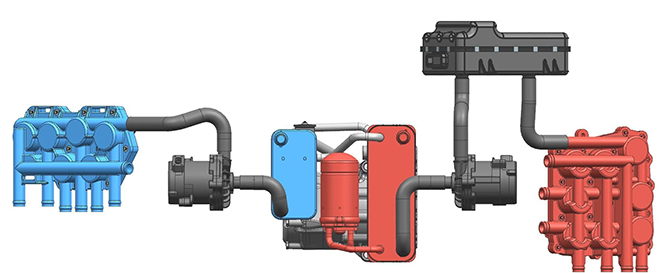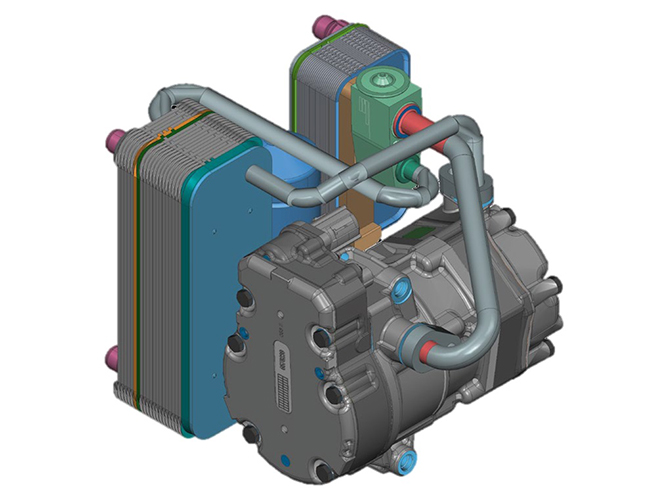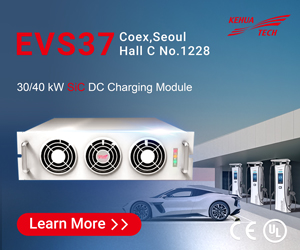Automotive supplier MAHLE has developed a compact heat pump system (Integrated Thermal System, or ITS) that it says can increase winter cruising range for EVs by up to 20%.
Electric vehicles don’t produce the waste heat that ICE vehicles do, so most EVs today rely on direct resistive heating by electric heaters to heat the cabin and battery in winter. MAHLE warns that this extra load on the drivetrain battery in cold temperatures can reduce the cruising range of a fully charged EV by up to half.
The company’s ITS combines various thermal components into one system. Central to its architecture is a semi-hermetic refrigerant circuit composed of a chiller, a coolant-cooled condenser, a thermal expansion valve, and an electric drive compressor. The ITS uses R1234yf as a refrigerant and conventional vehicle coolant as the medium for heat transport between the cooling circuit and the various heat sources and sinks in the vehicle.
In field tests with a compact EV, MAHLE says its ITS reduced the loss of cruising range, especially at cold ambient temperatures. Equipped with conventional electric heating, the EV started with a cruising range of 100 kilometers. When the vehicle was equipped with the ITS, the cruising range increased to 116 kilometers.

MAHLE says that in addition to the low cost and environmental benefits, the ITS is flexible and can be adapted to many vehicle architectures. The company is currently running tests on ITS-equipped vehicles in its climatic wind tunnel, and is working with American OEMs on implementing additional performance and cost optimizations.
“With the ITS from MAHLE, we can improve cruising range by between 7% and 20%, depending on the design, which drastically reduces the loss of cruising range in wintertime in particular,” says Laurent Art, Director of Advanced Engineering at MAHLE.
Source: MAHLE



















































